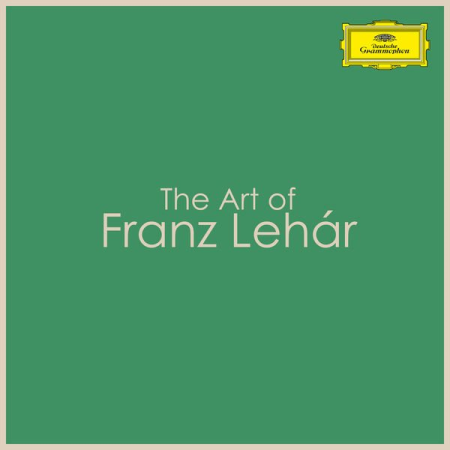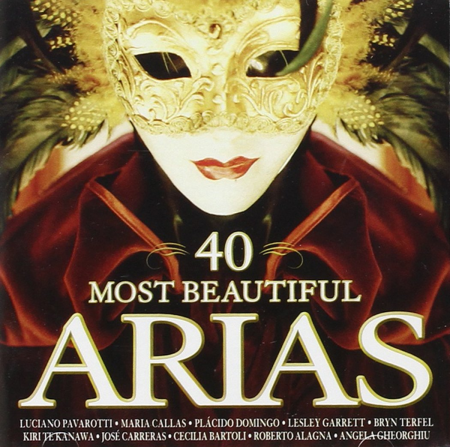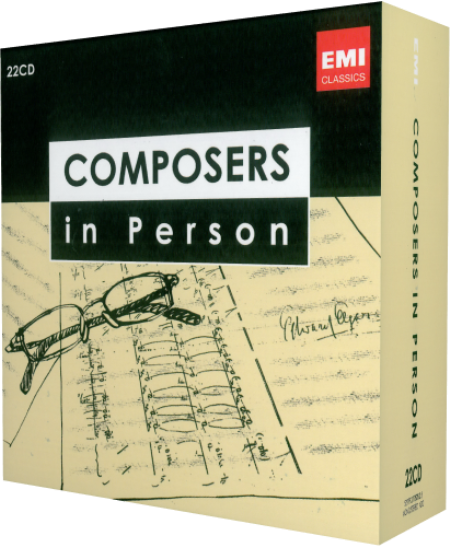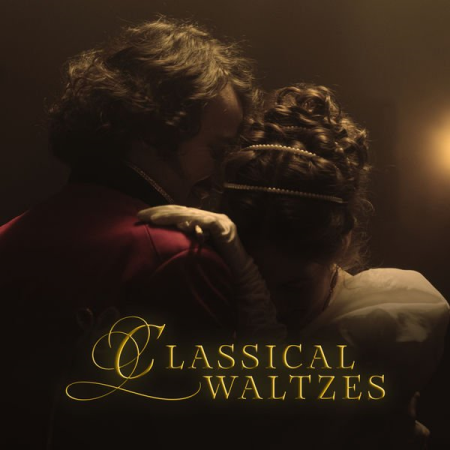VA - The Art of Franz Lehar (2022)

FLAC (tracks) / MP3 320 kbps | Classical | 3h 39 min | 997 / 505 MB
Franz Lehar was the most gifted and successful composer of operetta of the 20th century, and the most important composer of operetta after Johann Strauss Jr. His most famous work, The Merry Widow, may be the most recorded operetta in the world, and is in the repertory of numerous international opera companies; it has also been filmed several s, including three s in America in 1924 (by Erich Von Stroheim), in 1934 with Maurice Chevalier and Jeanette MacDonald, and in 1952 with Lana Turner and Fernando Lamas. The title waltz is sufficiently well known to middle-class American audiences to have figured as a key clue in the classic 1942 Hitchcock movie Shadow of a Doubt, set in a small California town. But he is also responsible for a half dozen other of the most beautiful operettas ever written.
Lehar was the son of a military band leader (also named Franz Lehar) who also played horn in the orchestra of the Theater an der Wien and composed numerous dances and waltzes. The younger Lehar studied violin at the Prague Conservatory, as well as studying composition privately, and Antonin Dvorak was among those who tried to advise the young musician. His perfog career began with his work as a theater violinist, and he played in a military band following his call-up in 1888. His first attempt at writing an opera was a failure, and he returned to military service, eventually taking over his father's position as bandmaster with the 3rd Bosnian-Herzegovinian infantry regiment upon the older man's retirement. It was this position that brought him to Vienna, and it was there that Lehar had his first taste of success as a composer with a group of popular marches.
He left the military in 1902 and made his home in Vienna, establishing himself as a conductor at the Theater an der Wien. Lehar's first successful operettas, Wiener Frauen and Der Rastlebinder, were first performed in Vienna. After two failed follow-up works, Lehar was asked to take over composition of an operetta called Die Lus Witwe (The Merry Widow). The popularity of the resulting work astounded onlookers, as The Merry Widow became an immediate hit not only in the German-speaking world but all over the globe, and the most successful operetta in history. Two of his next four works, Der Graf Von Luxemburg and Zigeunerliebe, also achieved widespread success. The outbreak of World War I brought a halt to some of Lehar's international successes, outside of Austria and Germany, and he only prred one work during the hostilities, but Lehar also spent a great deal of conducting concerts for soldiers on the Austrian-German side. The end of the war saw his work once again embraced in England and America, and he wrote several highly successful works, including Der Zarewitsch and Friederike, designed to utilize the talents of the legendary tenor Richard Tauber. In 1929, Lehar prred Der Land des Lachelns (The Land of Smiles), his most popular work since The Merry Widow, which had its prre that year in Berlin, with Tauber in the cast. By that , there were films being made of Lehar's operettas, and he composed several original movie scores in the years that followed into the middle and late 1930s. Such was Lehar's reputation that his music was in demand from the august Vienna State Opera, and it was there that his last operetta, Giuditta, was prred, with Tauber in the leading role over 100 radio stations around the world carried the performance. After the triumph of Giuditta, Lehar gave up composition in favor of seeing to his business affairs, founding his own publishing company and taking over the rights to many of his works. He remained in Austria even after the forced unification with Germany.
Now in his 60s, he understood little about politics, and even less about fascism. His wife was Jewish, which made his situation difficult, and he was forced to keep as low a profile as possible, despite the fact that The Merry Widow was one of Adolf Hitler's favorite pieces of music and often performed in Germany. He conducted on occasion, but otherwise wasn't a very visible presence musically. After the war, he was regarded with some suspicion for having remained in Austria, and in 1946, he moved to Switzerland, where his wife died the following year. He returned to Austria the next year and died there in the summer of 1948. His home has become a museum devoted to his work, and Lehar is remembered as one of the most beloved musical figures in Austria. Lehar's music displayed an astonishing gift for melody throughout his career, and memorable tunes seem to pour forth in a glorious stream from all of them. Like Johann Strauss II, he had an ability to make his music take turns that sounded both unexpected and natural, making his operettas a continual source of surprise and delight to audiences. His instrumental writing was nearly as sympathetic as his writing for the voice, and he understood the limitations and capabilities of the orchestra as well as anybody working in music in his life. No composer since Johann Strauss had so captured the love and musical imaginations of theater audiences around the world, and Lehar was by far Strauss' superior when it came to choosing librettos for his operettas. Some of his works from the 1920s, such as Paganini and Friederike, suffer from pretentious subject matter (the poet Goethe is a key character in the latter), but they're still gorgeous pieces of music through and through.
The Merry Widow is far and away his most popular work, but The Land of Smiles, Die Zarewitsch, Der Graf Von Luxemburg, Friederike, and Giuditta all have their considerable glories to recommend them. EMI Records, through its German branch, has recorded a considerable number of Lehar operettas, including at least two versions of The Land of Smiles, and several lesser-known Lehar works as well. The label features two superb versions of The Merry Widow with Elisabeth Schwarzkopf in the title role, cut during the 1950s and early 1960s, both of which are available on compact disc. During the 1970s and early 1980s, the label also recorded versions of Paganini, Friederike, Die Zarewitsch, and Der Graf Von Luxemburg, featuring such top talent as Anneliese Rothenberger and conductor Willi Boskovsky, which have been reissued on compact disc. The Telarc label has also begun recording a number of Lehar operettas in English translation, featuring singer Jerry Hadley, during the 1990s. Lehar left behind a number of recordings of his own, primarily recordings of the overtures and notable waltzes from his most popular operettas done between 1929 and 1942 for EMI, that reveal him as a talented conductor. After World War II, during his stay in Switzerland, he came out of retirement to record more of his waltzes and other instrumental highlights with the Zurich Tonhalle Orchestra, but these last sides have never been reissued on compact disc
.[0:36] 1. Heinz Zednik - "Also, also, also"
[0:35] 2. Barbara Bonney - "Camille!" - "Ja"
[0:37] 3. Cheryl Studer - "Ja, das Studium der Weiber ist schwer"
[0:37] 4. Bryn Terfel - "Nun, Njegus, haben Sie meine Botschaft uberbracht"
[0:45] 5. Barbara Bonney - "Camille, ich muß mit Ihnen sprechen"
[0:50] 6. Bryn Terfel - "Gospodina, dieses vaterlandische Fest..."
[0:54] 7. John Eliot Gardiner - Tanzszene
[1:05] 8. Boje Skovhus - "Exzellenz, Exzellenz, Graf, eine Expreßdepesche!"
[1:09] 9. Heinz Zednik - "Ah, die Baronin und der Herr Rosillon"
[1:25] 10. John Eliot Gardiner - "Exzellenz! Exzellenz! Diesen Facher hat man im Pavillon gefunden!"
[1:30] 11. Boje Skovhus - "Habe schon die vierte Nacht nicht geschlafen!"
[2:11] 12. Staatskapelle Dresden - Zigeuner-Marsch: Endlich, Joszi, bist du hier
[2:14] 13. Boje Skovhus - "Also Njegus, hier bin ich und wo ist das Vaterland" - "O Vaterland"
[2:27] 14. Rainer Trost - "Ich bitte Sie.." - "Ja, was" - Ein trautes Zimmerlein
[2:44] 15. Cheryl Studer - "Heia, Madel, aufgeschaut"
[2:53] 16. Angela Denoke - Liebe, du Himmel auf Erden
[2:55] 17. Rene Kollo - "Wie die Weiber...man behandelt ... Ja, das Studium der Weiber ist schwer"
[2:53] 18. Bryn Terfel - Overture
[3:00] 19. Boje Skovhus - "Aber dort bin ich zu Hause.." Lippen schwn
[3:02] 20. Heinz Zednik - "Graf Dailowitsch.." - "Ja, wir sind es, die Grisetten"
[3:07] 21. Boje Skovhus - "Wir werden uns noch schlagen um die Witwe" - "Wie die Weiber man behandelt"
[3:06] 22. Ana Maria Labin - Die Madels sind nur zum Kussen da
[3:09] 23. Berliner Philharmoniker - Entr'act. Vilja-Lied
[3:10] 24. Franz Volker - Dein ist mein ganzes Herz!
[3:10] 25. Elizabeth Harwood - "Lippen schwn"
[3:20] 26. Bryn Terfel - "Was hat das zu bedeuten" - "Bitte meine Herr'n" - "Hab' in Paris mich noch nicht ganz so akklimasiert"
[3:19] 27. Piotr Beczala - Girls Were Made To Love And Kiss
[3:18] 28. Piotr Beczala - Gern hab' ich die Frau'n gekusst
[3:20] 29. Piotr Beczala - Freunde, das Leben ist lebenswert
[3:28] 30. Piotr Beczala - You Are My Heart's Delight
[3:28] 31. Piotr Beczala - Dein ist mein ganzes Herz
[3:49] 32. Staatskapelle Dresden - Intermezzo
[3:49] 33. Angela Denoke - Wer will heut Nacht mein Liebster sein
[4:00] 34. Radio Orchestra of Beromunster - Walzer
[4:03] 35. Angela Denoke - Warum hat jeder Fruhling, ach, nur einen Mai
[4:03] 36. Piotr Beczala - Niemand liebt Dich so wie ich
[4:06] 37. Barbara Bonney - "So kommen Sie! 's ist niemand hier!"
[4:11] 38. Staatskapelle Dresden - Lehar: Wilde Rosen
[4:18] 39. Ana Maria Labin - Ich bin verliebt
[4:28] 40. Ana Maria Labin - War es auch nichts als ein Augenblick
[4:34] 41. Elina Garanca - Hor' ich Zymbalklange
[4:53] 42. Angela Denoke - Niemand liebt Dich so wie ich
[4:51] 43. Radio Orchestra of Beromunster - Immer nur lacheln und immer vergnugt
[5:07] 44. Beverly Sills - Einer wird kommen
[5:13] 45. Staatskapelle Dresden - Ballettszene
[5:18] 46. Boje Skovhus - "Mein tapferer Reitersmann" - "So wie die Dinge sich entwickeln"
[5:20] 47. Beverly Sills - Meine Lippen, die kussen so heiss
[5:36] 48. Piotr Beczala - Wer hat die Liebe uns ins Herz gesenkt
[5:45] 49. Radio Orchestra of Beromunster - Prelude
[6:34] 50. Barbara Bonney - "Nein, nein, nein" - "Mein Freund! Vernunft!" - "Wie eine Rosenknospe"
[6:56] 51. Staatskapelle Dresden - Overture
[7:05] 52. Staatskapelle Dresden - Walzer
[7:15] 53. Wiener Philharmonic Orchestra - Walzer
[8:13] 54. Gothenburg Symphony Orchestra - Lehar: Gold und Silber, Op. 79
[9:31] 55. Cheryl Studer - "Ich bitte, hier jetzt zu verweilen" - "Es lebt' eine Vilja"
[10:05] 56. Cheryl Studer - "Also, lieber Graf.." - "Damenwahl! Hort man rufen rings im Saal!"
[11:34] 57. Heinz Zednik - "Ha!Ha!" - "Wir fragen, was man von uns will!"
DOWNLOAD
uploadgig.com
https://uploadgig.com/file/download/f75ee90A1C918afd/b7yh10HW_Lehar_.rar
https://uploadgig.com/file/download/d4cAAcbcd75b7d40/b7yh10HW_Lehar3_.rar
rapidgator.net
https://rapidgator.net/file/e46264f32f04d66cd2b197bf17c115ab/b7yh10HW_Lehar_.rar.html
https://rapidgator.net/file/a418755f71a1a074697316063b081526/b7yh10HW_Lehar3_.rar.html
nitro.download
https://nitro.download/view/3ED7F3706A9E281/b7yh10HW_Lehar_.rar
https://nitro.download/view/7AE959828C04434/b7yh10HW_Lehar3_.rar




